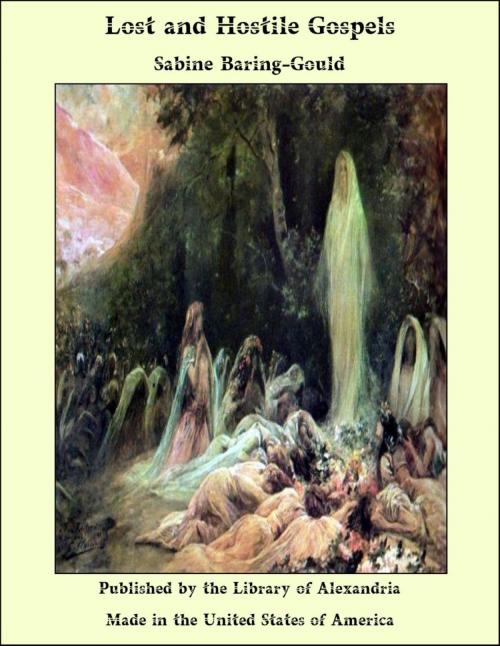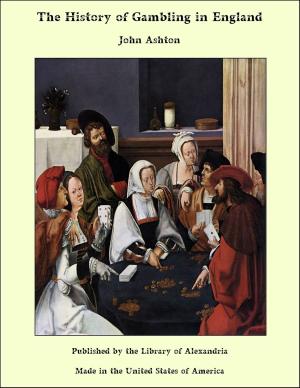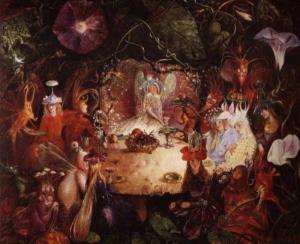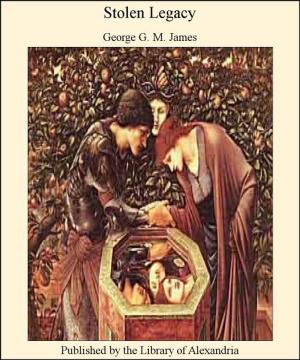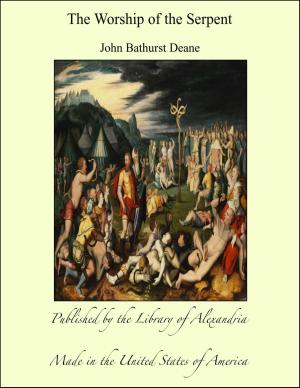Lost and Hostile Gospels
Nonfiction, Religion & Spirituality, New Age, History, Fiction & Literature| Author: | Sabine Baring-Gould | ISBN: | 9781465601308 |
| Publisher: | Library of Alexandria | Publication: | March 8, 2015 |
| Imprint: | Language: | English |
| Author: | Sabine Baring-Gould |
| ISBN: | 9781465601308 |
| Publisher: | Library of Alexandria |
| Publication: | March 8, 2015 |
| Imprint: | |
| Language: | English |
It is somewhat remarkable that no contemporary, or even early, account of the life of our Lord exists, except from the pens of Christian writers. That we have none by Roman or Greek writers is not, perhaps, to be wondered at; but it is singular that neither Philo, Josephus, nor Justus of Tiberias, should have ever alluded to Christ or to primitive Christianity. The cause of this silence we shall presently investigate. Its existence we must first prove. Philo was born at Alexandria about twenty years before Christ. In the year A.D. 40, he was sent by the Alexandrine Jews on a mission to Caligula, to entreat the Emperor not to put in force his order that his statue should be erected in the Temple of Jerusalem and in all the synagogues of the Jews. Philo was a Pharisee. He travelled in Palestine, and speaks of the Essenes he saw there; but he says not a word about Jesus Christ or his followers. It is possible that he may have heard of the new sect, but he probably concluded it was but insignificant, and consisted merely of the disciples, poor and ignorant, of a Galilean Rabbi, whose doctrines he, perhaps, did not stay to inquire into, and supposed that they did not differ fundamentally from the traditional teaching of the rabbis of his day. Flavius Josephus was born A.D. 37—consequently only four years after the death of our Lord—at Jerusalem. Till the age of twenty-nine, he lived in Jerusalem, and had, therefore, plenty of opportunity of learning about Christ and early Christianity. In A.D. 67, Josephus became governor of Galilee, on the occasion of the Jewish insurrection against the Roman domination. After the fall of Jerusalem he passed into the service of Titus, went to Rome, where he rose to honour in the household of Vespasian and of Titus, A.D. 81. The year of his death is not known. He was alive in A.D. 93, for his biography is carried down to that date. Josephus wrote at Rome his “History of the Jewish War,” in seven books, in his own Aramaic language.
It is somewhat remarkable that no contemporary, or even early, account of the life of our Lord exists, except from the pens of Christian writers. That we have none by Roman or Greek writers is not, perhaps, to be wondered at; but it is singular that neither Philo, Josephus, nor Justus of Tiberias, should have ever alluded to Christ or to primitive Christianity. The cause of this silence we shall presently investigate. Its existence we must first prove. Philo was born at Alexandria about twenty years before Christ. In the year A.D. 40, he was sent by the Alexandrine Jews on a mission to Caligula, to entreat the Emperor not to put in force his order that his statue should be erected in the Temple of Jerusalem and in all the synagogues of the Jews. Philo was a Pharisee. He travelled in Palestine, and speaks of the Essenes he saw there; but he says not a word about Jesus Christ or his followers. It is possible that he may have heard of the new sect, but he probably concluded it was but insignificant, and consisted merely of the disciples, poor and ignorant, of a Galilean Rabbi, whose doctrines he, perhaps, did not stay to inquire into, and supposed that they did not differ fundamentally from the traditional teaching of the rabbis of his day. Flavius Josephus was born A.D. 37—consequently only four years after the death of our Lord—at Jerusalem. Till the age of twenty-nine, he lived in Jerusalem, and had, therefore, plenty of opportunity of learning about Christ and early Christianity. In A.D. 67, Josephus became governor of Galilee, on the occasion of the Jewish insurrection against the Roman domination. After the fall of Jerusalem he passed into the service of Titus, went to Rome, where he rose to honour in the household of Vespasian and of Titus, A.D. 81. The year of his death is not known. He was alive in A.D. 93, for his biography is carried down to that date. Josephus wrote at Rome his “History of the Jewish War,” in seven books, in his own Aramaic language.
